 Frozen shoulder, or adhesive capsulitis, is a condition that presents itself as stiffness and pain in your shoulder joint. In most cases, signs and symptoms start gradually but worsen over time and are often resolved between one to three years later. Your chance of developing adhesive capsulitis increases if you are recovering from a medical procedure or condition that has kept you from moving your arm, this can include a mastectomy, arm fracture, or stroke.
Frozen shoulder, or adhesive capsulitis, is a condition that presents itself as stiffness and pain in your shoulder joint. In most cases, signs and symptoms start gradually but worsen over time and are often resolved between one to three years later. Your chance of developing adhesive capsulitis increases if you are recovering from a medical procedure or condition that has kept you from moving your arm, this can include a mastectomy, arm fracture, or stroke.
Treatment
Treating your frozen shoulder will involve range-of-motion exercises, and occasionally numbing medications and corticosteroids injected into the joint capsule. Few cases will require an arthroscopic surgery is necessary to loosen the joint capsule so that it is able to move more freely. It is uncommon for frozen shoulder to reoccur in the same shoulder; however, some people have developed it in their other shoulder.
Symptoms
Frozen shoulder comes on slowly and develops in three stages. Each stage can last for several months before progressing to the next.
- Freezing Stage – When any movement of your shoulder leads to pain and your shoulder’s range of motion become limited.
- Frozen Stage – Pain typically lessens during this stage but the shoulder will become stiffer, and movements are minimal.
- Thawing Stage – During this stage, your shoulder’s range of motion starts improving.
* In some cases, the pain is more severe at night and can result in difficulty sleeping.
Causes
Everything that makes up your shoulder joint, bones, ligaments, and tendons, are encased in a capsule of connective tissues. Frozen shoulder occurs when the capsule thickens and tightens around the shoulder joint, which as a result, limits the shoulder’s range of motion. Medical professionals are still unsure as to why this occurs to some people, although it is more likely to occur in people that have diabetes or who have had to immobilize their shoulder for a period of time following a medical condition or procedure that required them to do so.
Who’s At Risk?
There are certain factors that could increase your chances of developing adhesive capsulitis. These include:
Age & Sex
Women over the age of 40 are more likely to develop frozen shoulder.
Reduced Mobility Or Prolonged Immobility
People that have had reduced mobility or prolonged immobility of the shoulder have an increased chance of developing adhesive capsulitis. Immobility could be the result of several factors, such as a broken arm, stroke, rotator cuff injury, or recovery from a surgery.
Systematic Diseases
People that are suffering from certain diseases have a greater risk of developing frozen shoulder. Those with diabetes, tuberculosis, hyperthyroidism, hypothyroidism, cardiovascular disease, and Parkinson’s disease are more likely to be affected.
Preventing Frozen Shoulder
Perhaps the most common cause of frozen shoulder is immobility that occurs while recovering from a stroke, shoulder injury, or broken arm. If you have an injury that has limited your shoulder movements, talk to your doctor about exercises you are able to do in order to maintain the range of motion in your shoulder joint. Get ahead of the problem before it begins.
Contact Us (859-331-3100) For More Information to Request an Appointment
—
 About Tristate Arthritis and Rheumatology
About Tristate Arthritis and Rheumatology
Tristate Arthritis and Rheumatology is the first and largest Rheumatology practice in the Northern Kentucky area. Founded by Dr. Arthur Kunath in 1986, our rheumatology practice now consists of six doctors who are board certified in both Internal Medicine and Rheumatology and a Physician Assistant. Patients see one doctor (except in emergencies), thereby assuring continuity of care and an individualized doctor-patient atmosphere giving the physician the ability to establish personalized and detailed relationships. Our doctors have received numerous awards, including being listed as “Top Doctors” in Cincinnati Magazine, receiving the Patient’s Choice Award, the Most Compassionate Doctor Award, and the American College of Rheumatology’s “My Doc Rocks” award.


